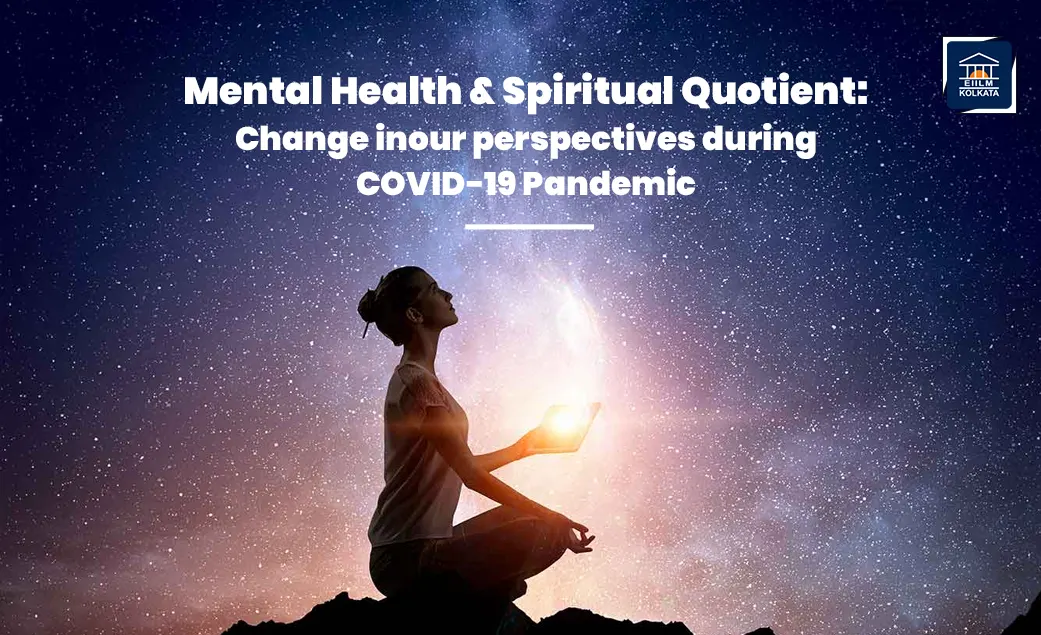During the last couple of Months, the Indian society, along with the world in general has been gripped by an extraordinary peril – the SARS CoV-2 or better known as the COVID – 19 coronavirus pandemic. During the initial stages of the pandemic, much of the attention of the experts and people in general has been on the physical and economic impact of the virus only. However, slowly, reports began to emerge about the toll of the virus in the human psyche as a result of prolonged quarantine and lockdown in various communities, and the economic repercussions as a result of almost all sectors suffering as the society came to a standstill. People began to ponder by how much the prolonged isolation affected a person’s mental health. Anxiety depression and harmful behaviours, for example, escalated, particularly as a result of increased social isolation especially in India, a family-centric society with a high population density and extreme social stratification. But, as a silver lining to this problem, discussions about mental health, became mainstream, per se in India, where, mental illness has largely been swept under the rug or perceived as a taboo topic. Mentally unstable persons have been stigmatized to the extent that more and more people have been reluctant to seek professional help during mental distress. But due to the widespread lockdown situation, the people experiencing mental fatigue are in the majority, so discussions about it are more and normalization about the discussions are under way . People began to realise the value of daily human-to-human interactions and the loneliness & anxiety resulting without it, thus shedding light on the plight of the people who had experienced the same before the global pandemic. Majority of the people now have a fear, for their mortal lives (in spite of the low death rate of people affected by COVID-19), thus people are more acquainted with the mental stress resulting from it, the burden, which was bore only by the people suffering from terminal diseases. In short, the pandemic gave us an opportunity to make discussions about mental health, not restricted to a small percentage of the population, but as widespread as other physical and clinical diseases.
In addition, the lockdown situation has put an immense opportunity in front of us to develop ourselves spiritually, ergo increasing our spiritual quotient. Spirituality, as we all know is going beyond our cognitive and emotional skills. It is acknowledging our mortality and thinking of what we could offer humanity. It is living in humility; bearing in mind that we are just a tiny speck compared to the vastness of the universe. Spiritual quotient (SQ) is a measure that looks at a person’s spiritual acumen; it is as important as intelligence quotient (IQ) and emotional quotient (EQ). Spirituality is like a mirror to our own selves, our own souls, where we cannot pretend, cannot lie, where we come face to face to the realisation of what it means to be a human and how my actions relate to it. The major part of the coronavirus pandemic is the isolation from our social life, and in this situation we have a chance to remodel our perspectives about spirituality in this context. We must strive to transform our collective isolation into an opportunity for communal solitude, we might discover that it is, as it has always been, the seedbed for growth in wholeness, for connection, for renewal. As we take an unwanted but much needed break from the hustle and bustle of daily life, we have a chance to introspect, a chance which was limited to very few people earlier due to time and resource constraints. There is no denying that our collective awareness of vulnerability, uncertainty, and death is stronger than any of us can remember, and so a renewed and much needed investment in spirituality has been soaring. People, in their confines of home, have been more drawn to earth, people investing more time and energy in gardening. Though it may be chalked out to lockdown and ample time in hand, I personally think, it is the more vulnerable people aware of their mortality trying to invest in life, where the germination of a seed into a living healthy plant, is providing people just that. The fact that our existence is insignificant and temporary has dawned onto people, and as a result people are becoming less superficial and more spiritually mature. Spirituality is not necessarily being religious, but to come to term with our inner self, to recognize ourselves in a new spectrum, to introspect our humanity, to come to peace of our fragile existence, and to affect our fellow humans’ lives positively in spite of that. COVID -19 Pandemic and the associated lockdown has just given us that opportunity to introspect and self-reflection. Connectedness, meaning, and purpose are essential human needs that are as true for everyone else. This is the essence of spiritual health, and it is being realised by the majority of humanity in this trying times.
— Avisekh Das, MBA-1


